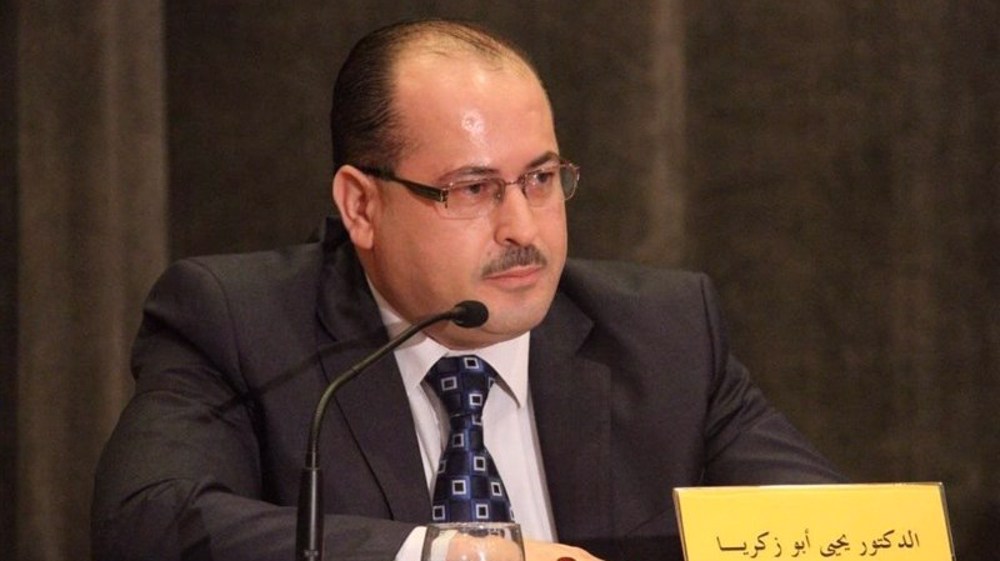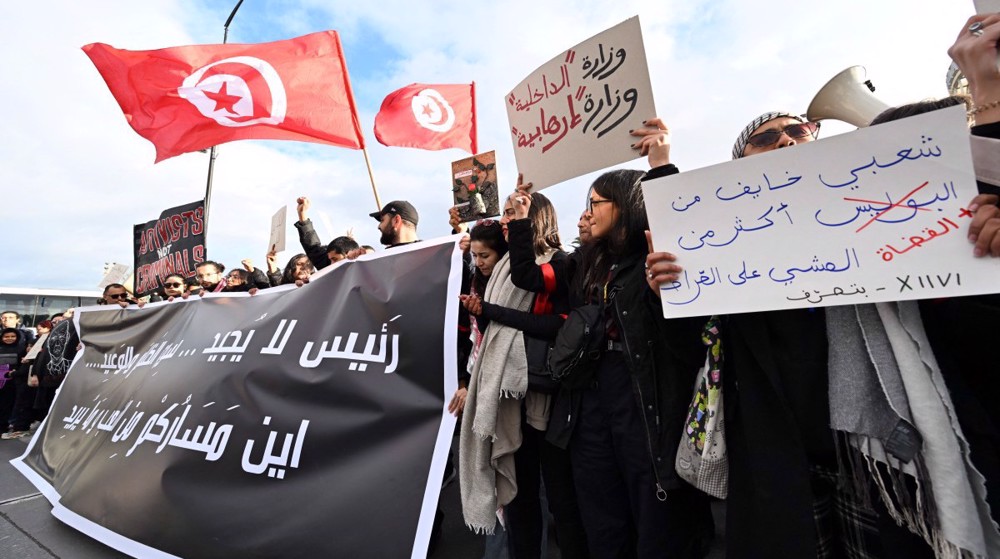Over 30 Tunisian MPs resign from ruling party
More than 30 Tunisian lawmakers have resigned from the ruling party bloc in parliament in protest at what they call meddling by President Beji Caid Essebsi's son in party affairs.
Hassouna Nasfi, one of the protesting lawmakers told reporters in the capital Tunis on Monday that at least 32 MPs tendered their resignations because they were dissatisfied with the way the party’ affairs was being run.
The discontented lawmaker also blamed the ruling Nidaa Tounes party for resorting to 'undemocratic' practices.
"We resigned to protest the non-democratic way in which the party has been managed," Nasfi said, adding, "We decided to resign from the party's bloc today after the refusal to hold an executive committee meeting, which is the only legitimate structure of the party."
This comes as allies of the President Essebsi have dismissed claims that they are looking to place his son, Hafedh Caid Essebsi, into a position of influence.

This is while critics allege that the president's allies in the parliament have not recognized the executive committee as the legitimate body to manage party affairs.
Nidaa Tounes, founded by Essebsi, emerged as a political force after beating the Islamic Ennahda Party in elections last year and went on to form a coalition government in the North African country.
Cracks began to emerge over the party's direction, appointments and structure after Essebsi senior was elected president and stepped down as its leader.
The divisions within the party have also resulted in Nidaa Tounes losing its parliamentary majority. The Ennahda Islamic party has 67 seats and Nidaa Tounes 54 seats in parliament after the resignations.
The developments come at a time when the North African country is facing economic crisis and a rising tide of militancy.
Tunisia has enjoyed a period of political stability following its transition to democracy after 2011 uprising ousted former dictator Zine El Abidine Ben Ali, who had been in power for over two decades.
VIDEO | Chileans head to the polls as presidential vote opens
US would face defeat in armed conflict with Venezuela - as in 12-day war: Envoy
Israel’s killing of senior commander threatens Gaza ceasefire: Hamas
Iran condemns ‘violent’ attack on Jewish event in Australia
Afghanistan’s regional integration key to lasting stability: Iran FM
VIDEO | 12 dead, dozens injured in mass shooting at Jewish event in Australia
‘Cinema Verité’ festival and a new geography of global resistance documentary
VIDEO | Iran seeking ouster of US forces from West Asia region: Analyst










 This makes it easy to access the Press TV website
This makes it easy to access the Press TV website